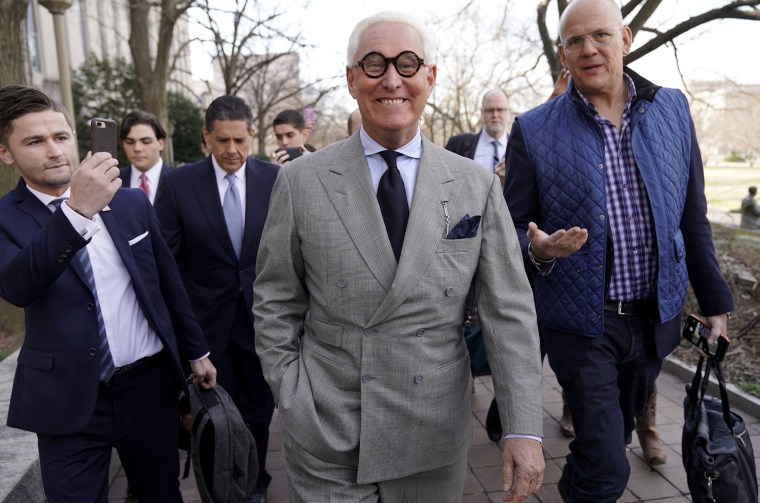As criminal proceedings against Republican operative Roger Stone move forward, and Donald Trump's longtime ally and adviser prepares to receive his felony sentence, the president's rhetoric about the case has grown more agitated -- and dishonest. In fact, Trump's rhetoric about the case appears to have helped spark a crisis of integrity at the Justice Department.
Yesterday in the Oval Office, however, the president pushed matters in a farcical and self-serving direction. He began by lashing at federal prosecutors from his own administration, insisting, "They ought to go back to school." But as part of the same harangue, the president went quite a bit further:
"[N]obody even knows what he did.... It's a disgrace. And, frankly, they ought to apologize to a lot of the people whose lives they've ruined."
Asked if he intended to pardon Stone, Trump added, "I don't want to say that yet. But I tell you what: people were hurt viciously and badly by these corrupt people."
Much of this is predictable nonsense. There is, for example, no evidence of corruption among the prosecutors involved in this case. There's also no reason to believe Stone deserves an apology over his willingness to commit felonies and get caught.
But what struck me as most notable was the president's assertion that "nobody even knows" what Stone did. Trump returned to the point at the same White House event, adding soon after, "[N]obody even can define what he did."
In reality, there's no ambiguity at all: prosecutors charged the Republican operative with a seven-count indictment, which Trump is welcome to read at any time, and after a jury trial, Stone was found guilty on all charges. There's no mystery here; it's all quite plain. Several people close to the president -- including Trump's former chief strategist (Steve Bannon) and deputy campaign chairman (Rick Gates) -- even gave sworn testimony during the trial.
What's more, whether the president realizes this or not, what Stone did was lie in defense of Trump.
If he pardons Stone for his crimes, it would be among the most serious abuses of presidential pardon power in American history. It would signal that a legal landscape now exists in which those who commit felonies in support of Trump will be protected from legal consequences.
As Sen. Chris Murphy (D-Conn.) explained this week, "It's really, really, really dangerous for the republic."

